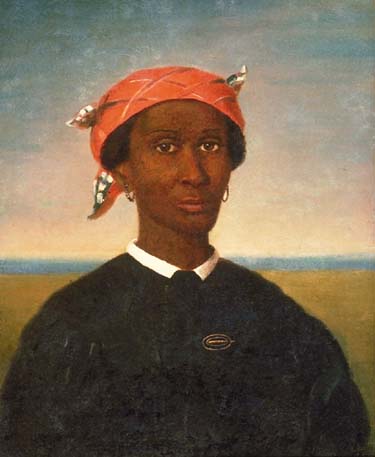|
1700, Jan
A case of a singular character was brought before the Court of Justiciary. In
the preceding July, a boy named John Douglas, son of
Douglas of Dornock,
attending the school of Moffat, was chastised by his teacher, Mr Robert
Carmichael, with such extreme severity that he died on the spot. The master is
described in the indictment as beating and dragging the boy, and giving him
three lashings without intermission, so that when ‘let down’ for the third
time, he ‘could only weakly struggle along to his seat, and never spoke more,
but breathed out his last, and was carried dying, if riot dead, out of the
school.’ Carmichael fled, and kept out of sight for some weeks, but by the
providence of God was discovered and seized.’
‘The Lords decerned the said Mr Robert to be taken from the
Tolbooth of Edinburgh by the hangman under a sure guard to the middle of the
Laudmarket, and there lashed by seven severe stripes; then to be carried down to
the Cross, and there severely lashed by six sharp stripes; and then to be
carried to the Fountain Well, to be severely lashed by five stripes; and then to
be carried back by the hangman to the Tolbooth. Likeas, the Lords banish the
said Mr Robert furth of this kingdom, never to return thereto under all highest
pains.’
Robert Carmichael was perhaps only unfortunate in some
constitutional weakness of his victim. An energetic use of the lash was the
rule, not the exception, in the old school—nay, even down to times of
which many living persons may well say, ‘quaeque miserrima vidi, et quorum
pars magna fui.’ In the High School of Edinburgh about 1790, one of the
masters (Nicol) occasionally had twelve dunces to whip at once, ranking them up
in a row for the purpose. When all was ready, he would send a polite message to
his colleague, Mr Cruikshank, ‘to come and hear his organ.’ Cruikshank
having come, Mr Nicol would proceed to administer a rapid cursory flagellation
along and up and down the row, producing a variety of notes from the patients,
which, if he had been more of a scientific musician, he might have probably
called a bravura. Mr Cruikshank was sure to take an early opportunity of
inviting Mr Nicol to a similar treat.
|
|
| FEATURE
ARTICLES |
 |
| |
|
 Robert Burns
Find out just how close Scotland came to losing the poet to
Jamaica, and the role played by Patrick Douglas Robert Burns
Find out just how close Scotland came to losing the poet to
Jamaica, and the role played by Patrick Douglas
 Seven Daughters of Eve
Almost all people of native
European descent, wherever they may live throughout the world, can
trace their ancestry back to one of seven women, hence, the Seven
Daughters of Eve. Seven Daughters of Eve
Almost all people of native
European descent, wherever they may live throughout the world, can
trace their ancestry back to one of seven women, hence, the Seven
Daughters of Eve.
 Pharoah's daughter -
Queen of Scots. A new book, Scota, Egyptian Queen
of the Scots, by Ralph Ellis, claims to prove that this origin
myth was no made-up story but the actual recording of an Egyptian
exodus that did indeed conclude in Scotland. Pharoah's daughter -
Queen of Scots. A new book, Scota, Egyptian Queen
of the Scots, by Ralph Ellis, claims to prove that this origin
myth was no made-up story but the actual recording of an Egyptian
exodus that did indeed conclude in Scotland.
 Robert
the Bruce. The 700th anniversary of his coronation was
celebrated on 24th March 2006. Robert
the Bruce. The 700th anniversary of his coronation was
celebrated on 24th March 2006.
 Rogues and vagabonds. Not all
Douglases have been goody goodies - read about horse theives, and
others.
Rogues and vagabonds. Not all
Douglases have been goody goodies - read about horse theives, and
others.
 Slaves and
slavers. Slaves and tales of daring-do, as the Douglases
hunt down the slave traders.
Slaves and
slavers. Slaves and tales of daring-do, as the Douglases
hunt down the slave traders.
 The
Douglas Heart. A heart features on many Douglas family coats of
arms, cests etc, including the one at the top of this page.
The
Douglas Heart. A heart features on many Douglas family coats of
arms, cests etc, including the one at the top of this page.
 DNA for
women. The scientists at Oxford
Ancestors can trace ancient maternal ancestry by testing
mitochondrial DNA (mtDNA), which is passed down from mother to
child and changes little over time. (There may be other suppliers)
DNA for
women. The scientists at Oxford
Ancestors can trace ancient maternal ancestry by testing
mitochondrial DNA (mtDNA), which is passed down from mother to
child and changes little over time. (There may be other suppliers)
 Lineage testing
by DNA. A research project seeks volunteers to help
prove Douglas connections
Lineage testing
by DNA. A research project seeks volunteers to help
prove Douglas connections
 Research legends and myths.
Many families have cherished myths and stories about
their immigration to America or other pivotal events and people. We
show you how to determine which family legends are true or false.
Research legends and myths.
Many families have cherished myths and stories about
their immigration to America or other pivotal events and people. We
show you how to determine which family legends are true or false.
|
| |
| PLEASE
CONTACT US |
 |
| |
|
 If
you have any questions or comments about the information on this
site, please contact
us . We look forward to hearing from you. If
you have any questions or comments about the information on this
site, please contact
us . We look forward to hearing from you.
If you wish to stimulate debate, challenge the
content or respond to requests for help, then
our
Forum, may be the place to do it.
|
|
This page is a stub.
You can help improve it.
The standard Lorem Ipsum passage, used since the 1500s
"Lorem ipsum dolor sit amet, consectetur adipisicing elit, sed do
eiusmod tempor incididunt ut labore et dolore magna aliqua. Ut enim ad
minim veniam, quis nostrud exercitation ullamco laboris nisi ut aliquip
ex ea commodo consequat. Duis aute irure dolor in reprehenderit in
voluptate velit esse cillum dolore eu fugiat nulla pariatur. Excepteur
sint occaecat cupidatat non proident, sunt in culpa qui officia deserunt
mollit anim id est laborum." |


